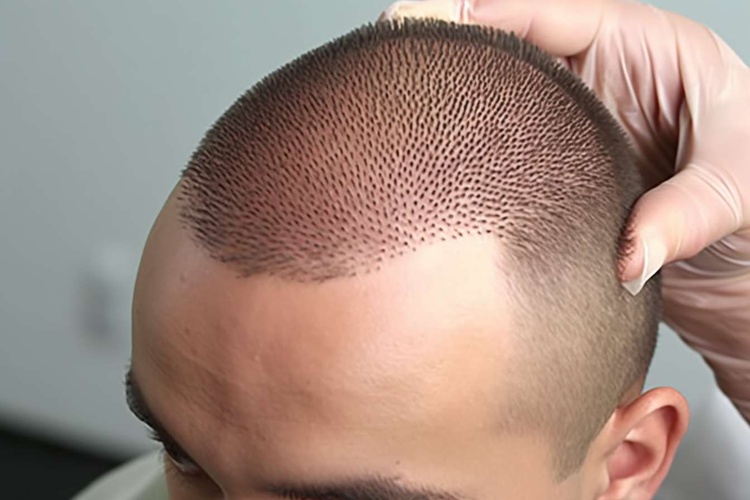Online Nursing Education: Your Path to Healthcare Career Success
Online nursing education has revolutionized how aspiring healthcare professionals pursue their degrees, offering flexibility without compromising quality. Whether you're starting your journey toward becoming a registered nurse or advancing to nurse practitioner status, digital learning platforms provide comprehensive programs that fit around your schedule. These accredited programs maintain the same rigorous standards as traditional classroom settings while allowing students to balance work, family, and educational commitments more effectively.

How Do Nursing Classes Online Compare to Traditional Programs?
Nursing classes online deliver the same core curriculum as campus-based programs but with enhanced flexibility for busy students. Most programs combine online theoretical coursework with hands-on clinical experiences at approved healthcare facilities in your local area. Students access lectures, participate in virtual simulations, and complete assignments through learning management systems available 24/7. The clinical component typically requires students to arrange practicum hours at hospitals, clinics, or other healthcare settings near their location, ensuring they gain essential real-world experience while maintaining the convenience of online learning.
What Should You Expect from Online NP Programs?
Online np programs offer advanced nursing education for registered nurses seeking to become nurse practitioners. These graduate-level programs typically span 2-3 years and include specialized tracks such as family practice, pediatrics, or psychiatric mental health. Students complete advanced pharmacology, pathophysiology, and clinical assessment courses online, followed by supervised clinical rotations totaling 500-1000 hours depending on the specialty. Many programs offer part-time options specifically designed for working nurses, allowing them to maintain their current positions while pursuing advanced degrees.
How Long Does Nurse Practitioner Schooling Take?
Nurse practitioner schooling duration varies based on your starting point and program structure. Students entering with a Bachelor of Science in Nursing (BSN) typically complete their Master of Science in Nursing (MSN) or Doctor of Nursing Practice (DNP) in 2-4 years. Those with non-nursing bachelor’s degrees can pursue RN-to-MSN bridge programs, which usually take 3-4 years to complete. Full-time students generally finish faster, while part-time options extend the timeline but offer greater schedule flexibility for working professionals.
What Are the Requirements for Registered Nurse Programs?
Registered nurse programs have specific prerequisites that vary by institution and program level. Most require a high school diploma or equivalent, completion of prerequisite courses in biology, chemistry, and mathematics, and satisfactory scores on entrance exams like the TEAS or HESI. Some programs also require healthcare experience, background checks, and immunization records. Admission is often competitive, with programs evaluating GPA, test scores, and sometimes personal statements or interviews. Students must also meet technology requirements for online components, including reliable internet access and specific software or hardware.
Are Online Associate Nursing Programs Right for You?
Online associate nursing programs provide an accessible entry point into nursing careers, typically taking 2-3 years to complete. These Associate Degree in Nursing (ADN) programs prepare students for the NCLEX-RN licensing exam and entry-level nursing positions. While the majority of coursework occurs online, students must complete clinical rotations at approved facilities in their area. These programs cost significantly less than bachelor’s degree options while still providing pathways for career advancement through RN-to-BSN bridge programs later.
| Program Type | Institution | Annual Tuition Range |
|---|---|---|
| Associate Degree Nursing (ADN) | Community Colleges | $3,000 - $8,000 |
| Bachelor of Science Nursing (BSN) | Southern New Hampshire University | $15,000 - $25,000 |
| Master of Science Nursing (MSN) | Arizona State University | $20,000 - $35,000 |
| Doctor of Nursing Practice (DNP) | Johns Hopkins University | $30,000 - $50,000 |
| RN-to-BSN Bridge Programs | Penn State World Campus | $12,000 - $20,000 |
Prices, rates, or cost estimates mentioned in this article are based on the latest available information but may change over time. Independent research is advised before making financial decisions.
Making Your Decision About Online Nursing Education
Online nursing education continues to grow in acceptance among employers and healthcare organizations, with graduates demonstrating comparable competency to their traditionally-educated counterparts. The key is choosing accredited programs that meet your career goals and learning style. Consider factors such as clinical placement assistance, technology support, faculty credentials, and NCLEX pass rates when evaluating programs. Many institutions offer information sessions and academic advising to help prospective students understand program requirements and career outcomes.
Online nursing programs represent a practical solution for aspiring healthcare professionals seeking quality education with schedule flexibility. From associate degree programs that provide entry into the nursing profession to advanced practice degrees that prepare nurse practitioners, digital learning platforms continue expanding access to nursing education. Success in these programs requires self-discipline and strong time management skills, but the career opportunities and personal satisfaction of nursing make this educational investment worthwhile for many students.




